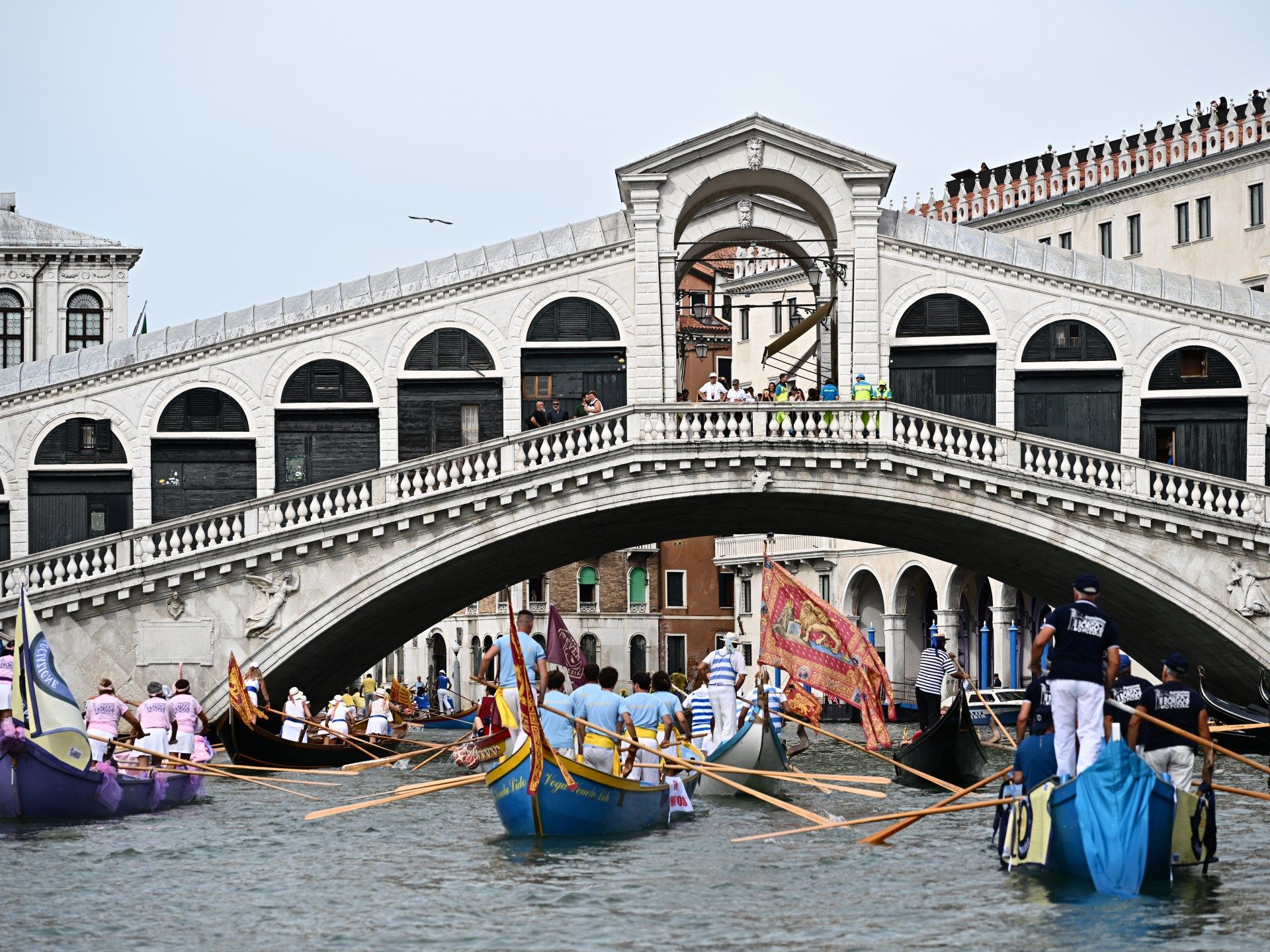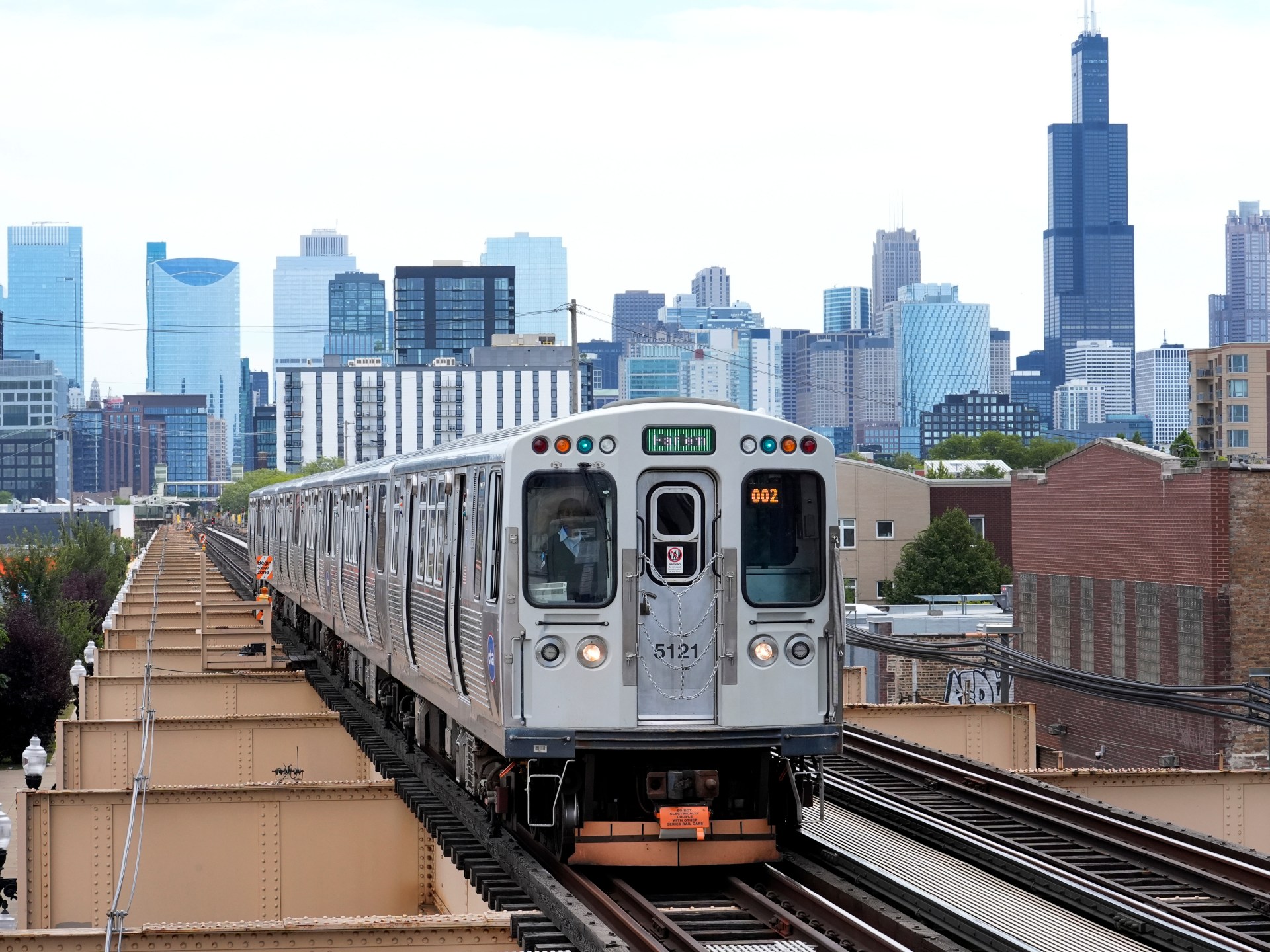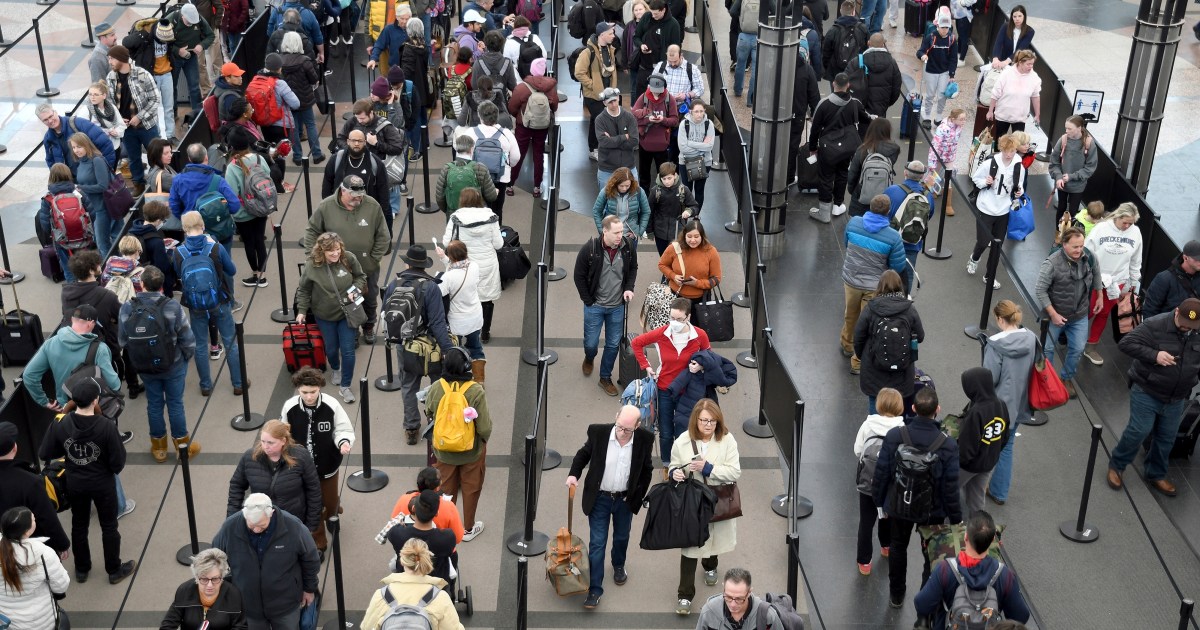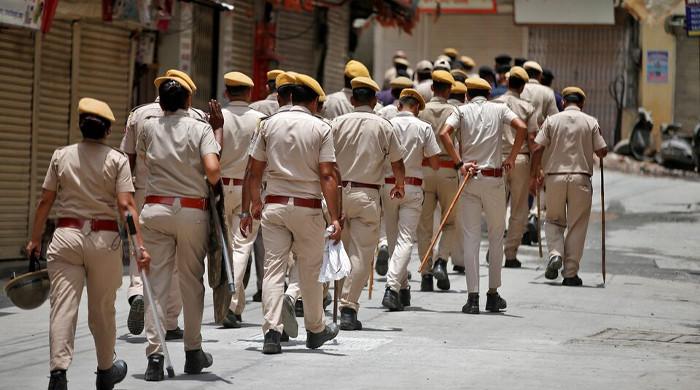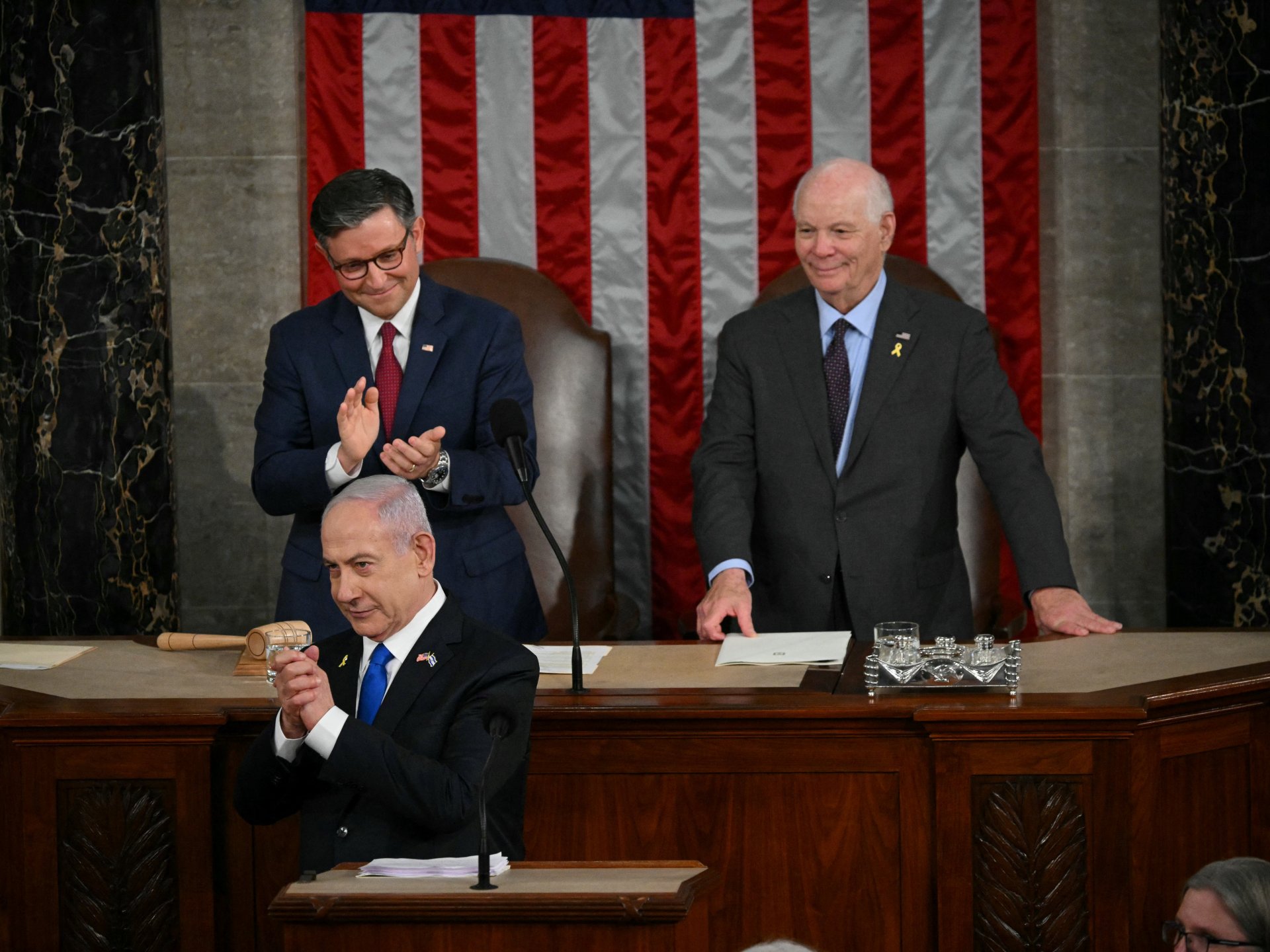Venice has ended its pilot program of charging a 5 euro ($5.46) entrance fee to day-trippers arriving on particularly busy days, after opponents called the experiment a failure.
Authorities at the famous Italian destination, also a UNESCO World Heritage site, introduced an entry tax in April in the hope of deterring some people from visiting. The system was designed to manage the flow of tourists when visitor numbers peak.
But on Saturday, several dozen activists gathered outside the Santa Lucia train station overlooking a packed canal to protest the entry fee, saying it did little to deter visitors from arriving on peak days as planned.
“The formula is a failure, as shown by the city's data,” said Giovanni Andrea Martini, an opposition councillor.
During the first 11 days of the trial period, an average of 75,000 visitors were recorded in the city. Martini said that was 10,000 more each day than in three indicative bank holidays in 2023, citing figures provided by the city based on mobile phone data recording arrivals in the city.
Simone Venturini, the Councillor responsible for Tourism and Social Cohesion, said the initial evaluation of the programme was positive and confirmed that the system would be renewed in 2025, but acknowledged that there were still large crowds.
“Some weekends there were fewer people than at the same time last year… but nobody expected all the hikers to miraculously disappear,” he told Reuters news agency.
“It will be more effective in the coming years when we increase the number of days and raise the price,” he added, without specifying how much visitors will have to pay in 2025.
A proposal to double the fare to 10 euros ($10.92) next year is being considered, a city spokesman added.
'Turn Venice into a museum'
In the past two and a half months, nearly 438,000 tourists have paid the entry tax, raising revenue of about 2.19 million euros ($2.4 million), The Associated Press news agency reported, based on data provided by the city.
The tax does not apply to people staying in hotels in Venice, who already pay the accommodation tax. Exemptions also apply to children under 14, residents of the region, students, workers and people visiting relatives, among others.
Officials have said the money would be used for essential services, which cost more in a city crisscrossed by canals, including garbage collection and maintenance.
Opponents of the plan want policies that would incentivize repopulation of Venice's historic center, which has been losing residents to the more convenient mainland for decades, including imposing limits on short-term rentals.
“I want to raise this [entrance fee] “The 10 euro price tag is absolutely pointless. It turns Venice into a museum,” said Martini.

Many of the signs at Saturday’s protest also indicated growing concerns about the electronic and video surveillance system the city implemented in 2020 to monitor cellphone data of people arriving in the city, which is the backbone of the system to control tourism. The signs included warnings about the use of personal data and the lack of data privacy.
“The entrance ticket is a huge distraction for the media, which only talks about these 5 euros, which next year will be 10 euros,” says Giovanni Di Vito, a Venetian active in the campaign against the tourist tax.
“But no one is focusing on the system of surveillance and control of citizens.”
Martini instead advocated a free reservation system for visitors to avoid excluding low-income families from the market, but which would allow potential tourist arrivals to be tracked.
“We need to be able to warn people that if they come on certain days they're not going to have a good time,” he said, adding that the long-term goal should be to attract back seasonal residents who have left the city in recent years as short-term rentals increasingly dominate the housing market.

